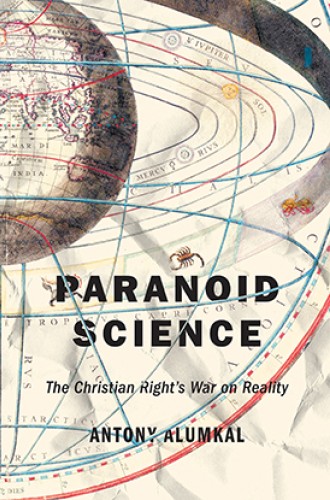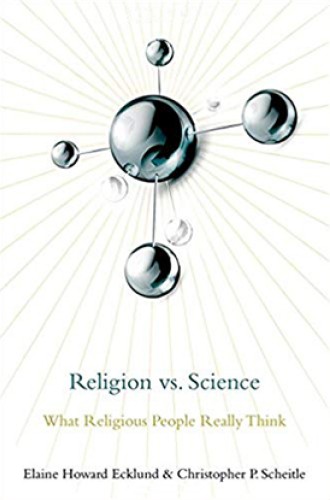With every news cycle, it becomes increasingly apparent that Richard Hofstadter’s 1964 essay “The Paranoid Style in American Politics” is still relevant. Antony Alumkal summarizes Hofstadter’s take on the politics of paranoia as the view that there is “a vast conspiracy, a gigantic yet subtle machinery of influence sent in motion to undermine and destroy a way of life.” It is characterized by “heated exaggeration, suspicion, and conspiratorial fantasy.” This is the lens, Alumkal argues, that helps us make sense of the Christian right’s use and misuse of science.
Alumkal works out his thesis in relation to four issues of contention: intelligent design, the ex-gay movement (i.e., conversion therapy), bioethics, and climate change. As his study makes clear, the so-called Christian right is not so much antiscience as it is concerned about defining what counts as pure and legitimate science. The baseline test for legitimate science is that its findings do not run counter to a straightforward, literal reading of the Bible. Alumkal makes a strong case for the determinative role of biblical authority and interpretation in the negotiation between science and faith for conservative evangelicals. However, his descriptions of how that negotiation unfolds fall into the same sort of exaggeration and suspicion that he otherwise decries.
In the evangelical mind-set that Alumkal describes, evolution is regarded with grave suspicion because it promotes a worldview that has no need of a Creator God. At the same time, the scientific finding that our planet is fine-tuned for the flourishing of life is embraced because it affirms and provides evidence for God as Creator and sustainer of all things. Similarly, the science that (until the late 1970s) regarded homosexuality as a mental disorder that could be “corrected” with therapy is legitimate because it corresponds to the biblical account of the inextricable tie between gender identity, sexual desire, and heterosexual marriage. The science that gives evidence for the fluidity of gender formation and sexual identity is rejected because it contradicts what the Bible teaches. The science that makes the case for humanity’s capacity to negatively impact the earth’s atmosphere is dubious because it goes against a biblical understanding of the sovereignty of God, who has designed all things well and determines the outcome of history.







